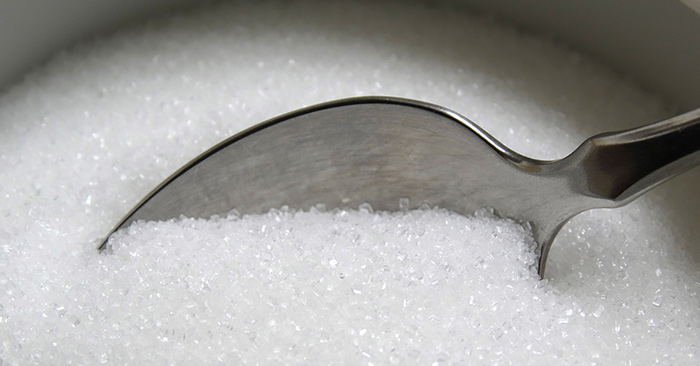Study: Sweetener Erythritol May Elevate Risk for Heart Attack, Stroke

A new study in the scientific journal Nature Medicine is drawing links between popular sweetener erythritol and blood clotting, stroke, heart attack and death.
The study, conducted by analysts at the Cleveland Clinic Lerner Research Institute, reported that erythritol appeared to be causing blood platelets to clot more easily. Research also indicated that people with existing risk factors for heart disease were twice as likely to experience a heart attack or stroke if they had higher levels of erythritol in their blood compared to lower levels.
Stanley Hazen, M.D., Ph.D., chairman for the Department of Cardiovascular & Metabolic Sciences in Lerner Research Institute and co-section head of Preventive Cardiology at Cleveland Clinic, told CNN: “It’s on par with the strongest of cardiac risk factors, like diabetes.”
Hazen discovered the sweetner’s impact while conducting a larger study that screened participant’s blood for chemicals and compounds in an effort to map whether the presence of certain substances could determine future risk of cardiovascular disease. After analyzing 1,157 samples between 2004 and 2011, the team detected one substance – later identified as erythritol – was the cause.
For the final part of the study, eight people volunteered to drink a beverage with 30 grams of erythritol, the amount many Americans consume based on survey data.
“Our study shows that when participants consumed an artificially sweetened beverage with an amount of erythritol found in many processed foods, markedly elevated levels in the blood are observed for days – levels well above those observed to enhance clotting risks,” said Dr. Hazen in a press release. “It is important that further safety studies are conducted to examine the long-term effects of artificial sweeteners in general, and erythritol specifically, on risks for heart attack and stroke, particularly in people at higher risk for cardiovascular disease.”
Valued for its neutral taste and ability to replicate cane sugar’s crystalline texture, erythritol is a GRAS-certified artificial sweetener produced by fermenting corn. Within finished products, it is frequently used to complement stevia and monk fruit, two of the most widely used natural sweeteners in food and beverage.
Traditionally, erythritol is made by fermenting glucose with the fungi, Moniliella pollinis; however, since the compound naturally occurs in some fruits and vegetables, some companies have begun to extract the ingredient from upcycled produce like banana peels and pears. The human body also creates low amounts of the sugar alcohol naturally.
Industry group the Calorie Control Council (CCC) disputed the report in a statement.
“Like the previous study conducted by this group, which investigated associations between low- and no-calorie sweeteners and cancer, these allegations are contrary to decades of scientific research showing these sweeteners are safe, as evidenced by global regulatory permissions for their use,” the group wrote on its website.
According to the CCC, the study’s sample size and reporting method also raises concerns about the applicability of its findings to the general public. The organization claims that those who volunteered to participate are not representative of the broader population due to unique characteristics like lifestyle and socioeconomic status. Additionally, the CCC said because the study’s participants self-reported, the findings could have been influenced by recall bias, misreporting and under-reporting erythritol intake.
Hazen and his team at the Cleveland Clinic noted in their publication that follow up studies are necessary to confirm these findings as the methodology used analyzed erythritol’s association with heart disease rather than causation.


















![[Updated] Oats Overnights Secures $45M Investment From Astō](https://d2azl42aua8mom.cloudfront.net/wp-content/uploads/2026/01/29172259/2026-01-29-oats-overnights-secures-45m-in-growth-equity-from-square-150x150.jpg)